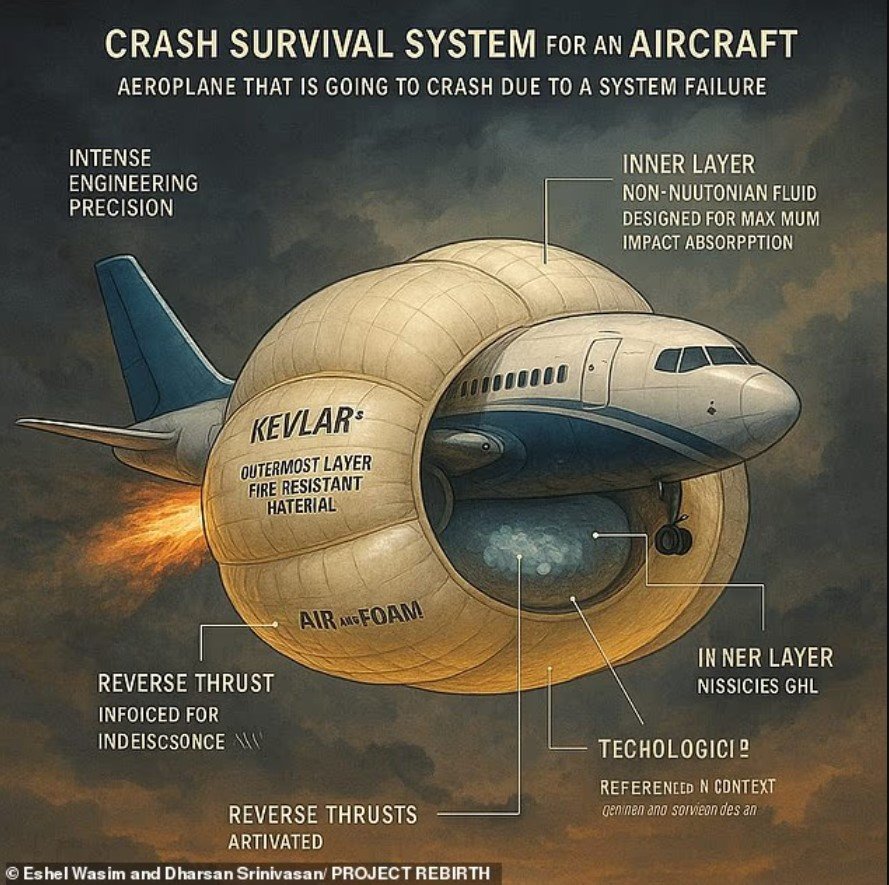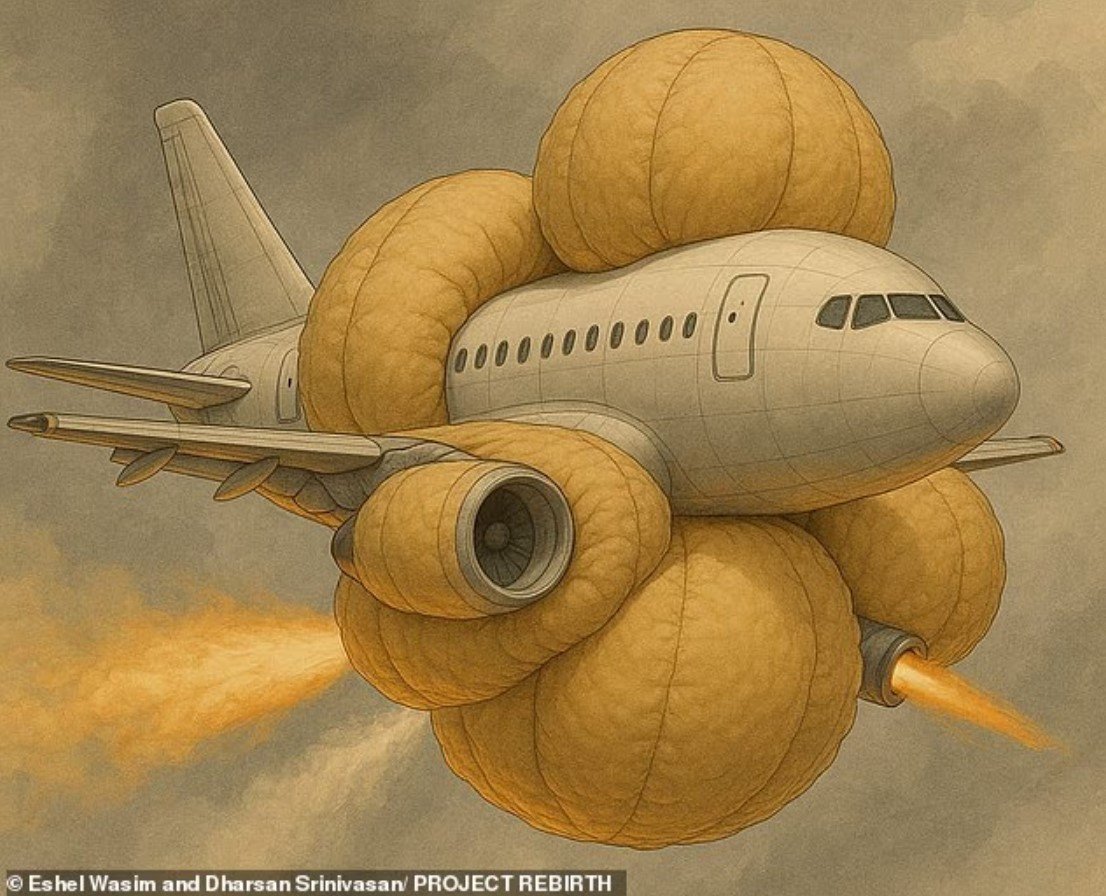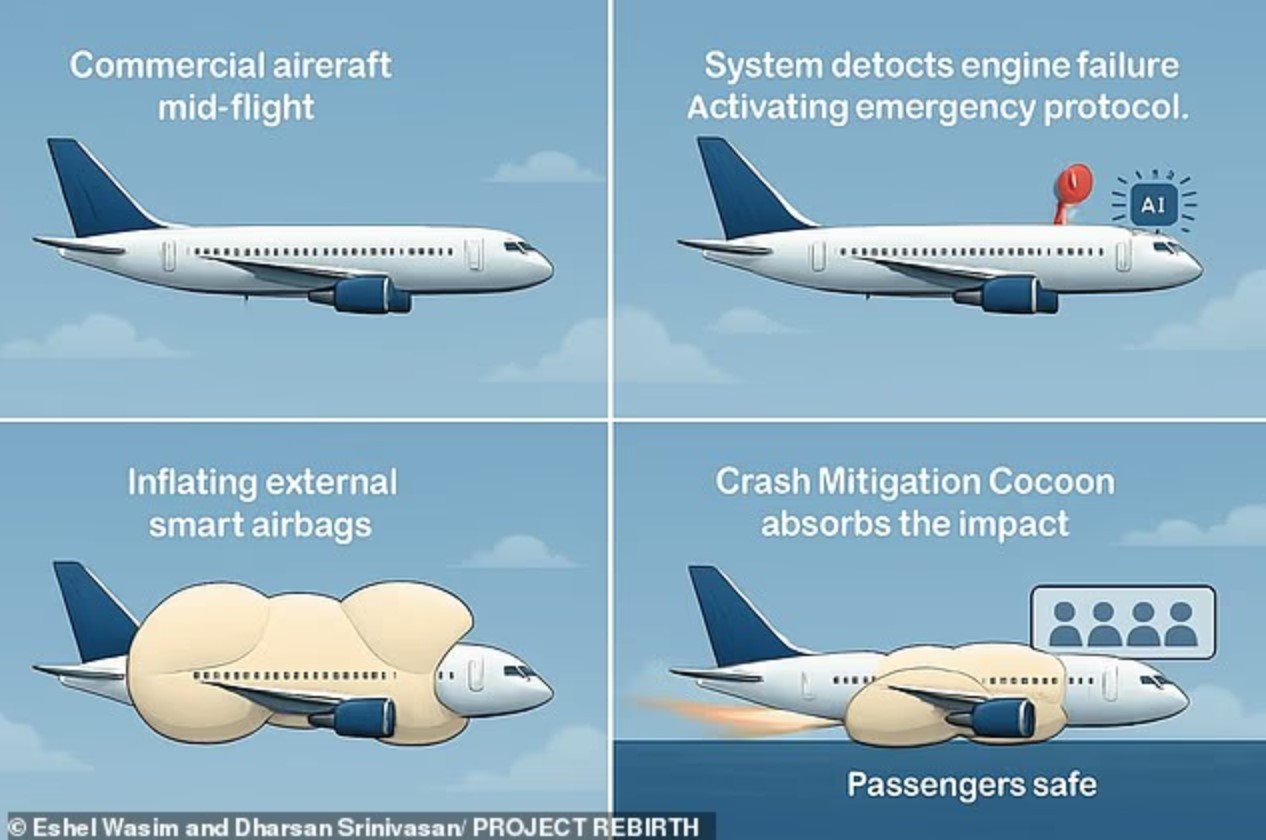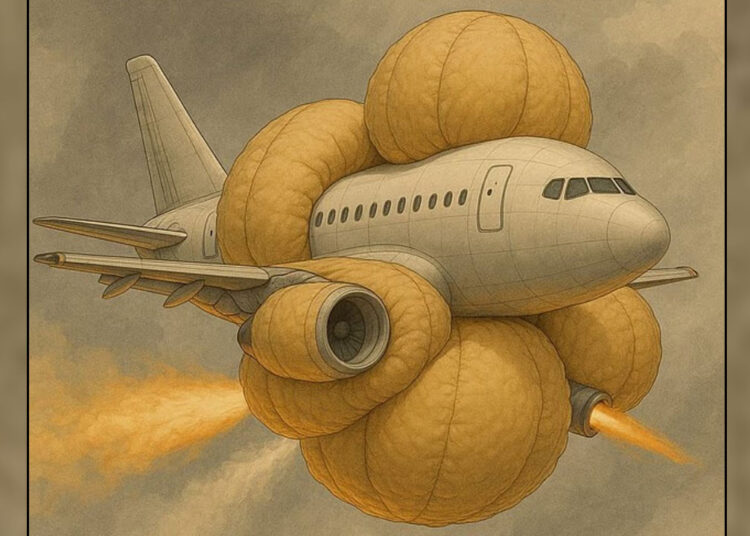Shortly after the tragic accident of Air India, engineers began working on a concept that could fundamentally change aircraft safety. Named Project Rebirth, this idea is designed as a system equipped with enormous airbags integrated into the aircraft. AI-supported sensors detect potential accidents instantly, and with airbags opening at the nose, fuselage, and tail sections, it encases the aircraft in a protective cocoon. Thanks to this structure, even sudden altitude loss can be transformed into a controlled descent, aiming to make passengers safer against deadly impacts.

Project Rebirth drew attention as an invention finalist in the James Dyson Award. This project was developed by Eshel Wasim and Dharsan Srinivasan, working at the Birla Institute of Technology and Science’s Dubai campus, inspired by the Air India Flight 171 accident. In that incident, a plane departing from Ahmedabad Airport crashed just 32 seconds after takeoff, and 260 people lost their lives; the cause of the accident is still under investigation. A engineer describes how the feeling of helplessness faced after the crash prompted them to ask why there wasn’t a system in place to ensure survival, leading to deep research.

The AI-supported system forms the backbone of Project Rebirth. This system continuously monitors altitude, speed, engine status, direction, fire risk, and pilot responses. It automatically activates when it detects an imminent crash below 3,000 feet but allows for pilot intervention if needed. For example, if the engine is running, reverse thrust is engaged; if the engine isn’t working, gas injectors slow the descent. Liquid cushions in seats and walls also harden upon impact, protecting passengers.

In future plans, engineers state that this technology can be added to existing aircraft and integrated into new designs. Their goal is to collaborate with aerospace laboratories to bring the system to real-world testing. According to them, current safety systems focus on preventing accidents, whereas Project Rebirth adopts a different approach with the motto “preparing for the worst.” Excitement continues in this year’s international design competition, the Dyson Award, with a short list of 20 finalists and a prize of 30,000 pounds; results will be announced on November 5, and the 20 finalists will be disclosed on October 15.









